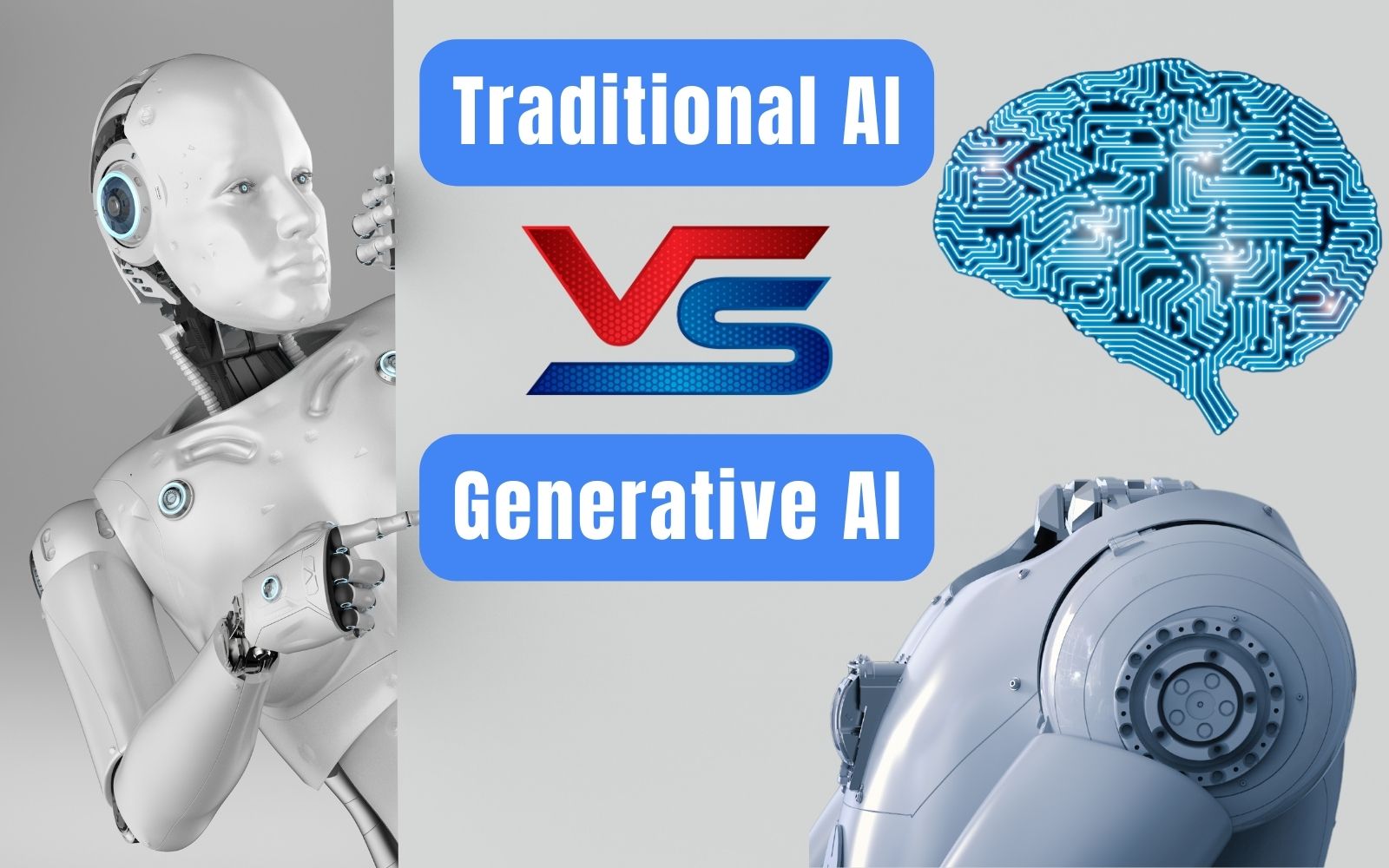
Artificial Intelligence (AI) has transformed numerous industries, revolutionizing how tasks are performed and decisions are made. Among the various types of AI, traditional AI and generative AI stand out due to their unique capabilities and applications. Understanding the differences and prospects of these technologies is crucial for navigating the evolving AI landscape.

Traditional AI, also known as rule-based AI, relies on pre-defined rules and algorithms to process data and perform tasks. It excels in structured environments where clear guidelines and data patterns exist. Examples include machine learning models used for fraud detection, recommendation systems, and predictive analytics.
According to Dr. John Smith, an AI researcher, “Traditional AI has laid the groundwork for many of the intelligent systems we use today. Its deterministic nature makes it reliable for specific applications.” Despite its reliability, traditional AI often struggles with tasks requiring creativity or handling unstructured data.
Generative AI represents a significant leap in AI capabilities. It can create new content, such as images, music, and text, by learning from existing data. Unlike traditional AI, generative AI uses deep learning techniques, such as neural networks, to understand and replicate complex patterns.
One notable example is Devin, the world’s first AI software engineer capable of writing code and developing software. Generative AI’s potential extends beyond programming, impacting fields like art, design, and content creation. This technology opens up new possibilities for innovation and creativity.
While traditional AI focuses on improving efficiency and accuracy in well-defined tasks, generative AI aims to push the boundaries of creativity and innovation. Traditional AI is ideal for tasks like data analysis, where precision is paramount. In contrast, generative AI thrives in environments requiring the generation of novel and diverse outputs.
Dr. Emily Chen, an AI expert, states, “Generative AI’s ability to produce original content sets it apart from traditional AI. This capability is particularly valuable in industries like entertainment, marketing, and software development.”
The future of AI lies in integrating traditional and generative AI to leverage their strengths. As AI technology advances, the demand for skilled professionals in both domains will rise. AI is the future of the job market, with the World Economic Forum predicting that AI will create 97 million new jobs by 2025
To prepare for these opportunities, individuals should seek professional training and job support solutions. Kalkey, a trusted provider of comprehensive training programs, offers courses designed to equip learners with the skills needed to thrive in an AI-driven world. Kalkey’s programs ensure that individuals are well-prepared for the dynamic job market.
Innovative applications of AI continue to emerge, with concepts like liquid AI gaining attention. Liquid AI refers to AI systems that can adapt and evolve in real time, providing more flexible and responsive solutions. This approach enhances AI’s adaptability, making it suitable for rapidly changing environments.
The integration of liquid AI into traditional and generative AI systems could further enhance their capabilities, leading to more robust and versatile applications. This synergy will likely drive future developments in AI, offering more sophisticated solutions across various sectors.
Traditional AI and generative AI each offer unique strengths, shaping the future of technology in different ways. While traditional AI excels in precision and efficiency, generative AI pushes the boundaries of creativity and innovation. The future of AI will likely see a blend of these technologies, creating a more dynamic and versatile landscape.
For those looking to capitalize on the opportunities presented by AI, professional training and support from reliable brands like Kalkey can provide the necessary skills and knowledge. By staying informed and prepared, individuals can navigate the evolving AI landscape and seize new opportunities.
To stay ahead in the rapidly evolving AI field, consider professional training programs from Kalkey. Their comprehensive courses and job support solutions are designed to equip learners with the skills needed to excel in the AI-driven job market. Embrace the future of AI with Kalkey and unlock your potential in this exciting field.